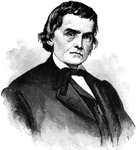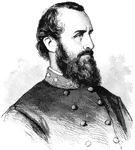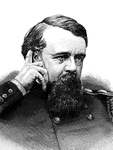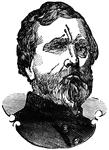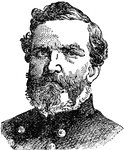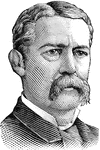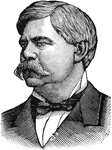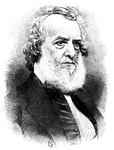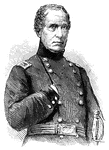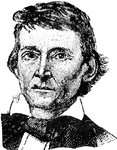
Alexander Stephens
The Vice President of the Confederate States of America during the American Civil War.
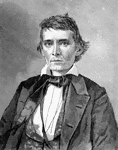
Alexander H. Stephens
"Alexander H. Stephens, Vice-President of the Confederate States of America."—E. Benjamin Andrews…

Alexander H. Stephens
(1812-1883) Vice President of the Confederate States of America during the American Civil War.
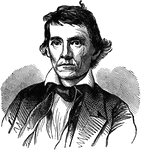
Alexander Hamilton Stephens
Alexander Hamilton Stephens (February 11, 1812 – March 4, 1883) was an American politician from Georgia.…
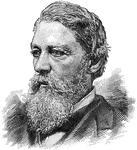
General George Stoneman
George Stoneman, Jr. (August 22, 1822 – September 5, 1894) was a career United States Army officer,…
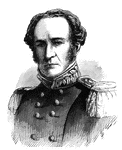
General George Stoneman
"General Stoneman, born in Busti, Chautauqua County, N. Y., August 8th, 1822, was graduated from the…

Admiral Silas H. Stringham
"Rear admiral Stringham, born in Middletown, Orange County, N. Y., November 7th, 1798; died in brooklyn,…
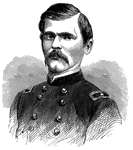
General George C. Strong
At the assault on Fort Wagner, July 18, he was mortally wounded. He was at once removed to New York…
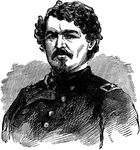
Samuel Davis Sturgis
Samuel Davis Sturgis (June 11, 1822 – September 28, 1889) was an American military officer who…
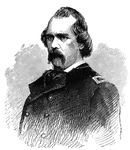
General Edwin V. Sumner
"General Sumner, born in Boston Mass., January 30th, 1797, died in Syracuse, N. Y., March 21st, 1863,…
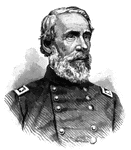
General Edwin V. Sumner
"General Edwin V. Sumner served during the Civil War."—E. Benjamin Andrews 1895
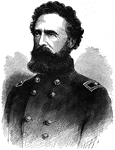
George Sykes
"General George Sykes, born in Dover, Del., October 9th, 1822, died in Brownsville, Texas, February…
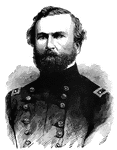
General George H. Thomas
"General Thomas, born in Southampton County, Va., July 31st, 1816, died in San Francisco, Cal., March…
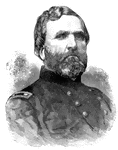
General George H. Thomas
"General George H. Thomas served during the Civil War."—E. Benjamin Andrews 1895
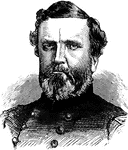
General George Henry Thomas
General George Henry Thomas, one of the principal Union commanders in the Western Theater.
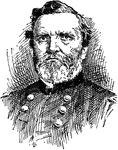
General George Henry Thomas
(1816-1870) Known as the "Rock of Chickamauga," he was a U.S. Army office and Union general during the…
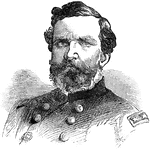
George Henry Thomas
George Henry Thomas (July 31, 1816 – March 28, 1870) was a career United States Army officer and…
!["General Lorenzo Thomas, born in Newcastle, Del., October 26th, 1804, died in Washington, D. C., March 2nd, 1875, was graduated from the United States Military Academy in 1823; served in the Florida and Mexican Wars, and received the brevet of lieutenant colonel for gallantry at Monterey. On the 7th of May, 1861, he was brevetted brigadier general, and made adjutant general of the army on August 3rd, with the full rank of brigadier general. He served until 1863, when he was intrusted for two years with the organization of [African American] troops in the Southern States. He was brevetted major general, United States Army, on March 13th, 1865. He was retired in 1869." — Frank Leslie, 1896](https://etc.usf.edu/clipart/11000/11059/thomas_11059_mth.gif)
Lorenzo Thomas
"General Lorenzo Thomas, born in Newcastle, Del., October 26th, 1804, died in Washington, D. C., March…
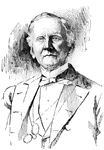
Samuel J. Tilden
"Samuel J. Tilden helped to reform the Democratic Party after the Civil War and ran for president."—E.…
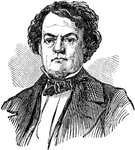
Robert Augustus Toombs
Robert Augustus Toombs (July 2, 1810 – December 15, 1885) was an American political leader, Secretary…
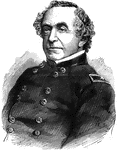
General Joseph G. Totten
"General Totten, born in New Haven, Conn., August 23rd, 1788, died in Washington, D. C., April 23rd,…
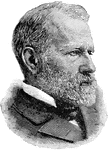
Benjamin Franklin Tracy
Benjamin Franklin Tracy (April 26, 1830 – August 6, 1915) was a United States political figure…
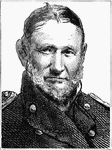
David Emanuel Twiggs
David Emanuel Twiggs (1790 – July 15, 1862) was a United States soldier during the War of 1812…

General Daniel Tyler
"General Tyler, born in Brooklyn, Windham County, Conn., January 7th, 1797, died in New York city, November…
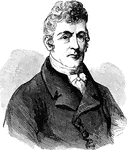
Stephen Van Rensselaer
Stephen Van Rensselaer III (November 1, 1765 – January 26, 1839) was Lieutenant Governor of New York…
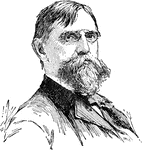
Benjamin Franklin Wade
Benjamin Franklin "Bluff" Wade (October 27, 1800 – March 2, 1878) was a U.S. lawyer and United States…
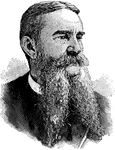
John Grimes Walker
John Grimes Walker (20 March 1835 – 16 September 1907) was an admiral in the United States Navy…
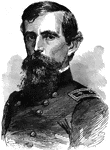
Lewis Wallace
"General Lewis Wallace, born in Brookville, Frankly County, Ind., April 10th, 1827, served in the Mexican…

Lewis Wallace
(1827-1905) A lawyer, eleventh Governor of the New Mexico Territory, and served in the Civil War for…
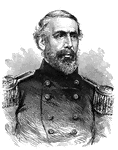
General J. H. Hobart Ward
"General Ward, born in New York city, June 17th, 1823, was educated at Trinity Collegiate School; enlisted…
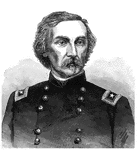
General Gouverneur K. Warren
"General Warren, born in Cold Spring, N. Y., January 8th, 1830, died in Newport, R. I., August 8th,…
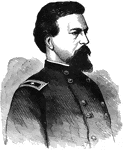
General Alexander S. Webb
"General Webb, born in New York city, February 15th, 1835, was graduated from the United States Military…
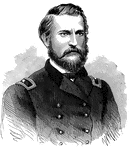
General Godfrey Weitzel
He joined the Western Louisiana campaign, and from May till September, 1864, was chief engineer of the…
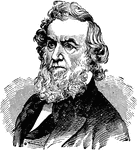
Gideon Welles
Gideon Welles (July 1, 1802 – February 11, 1878) was the United States Secretary of the Navy from…
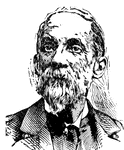
General Joseph Wheeler
(1836-1936) American Major-General active in Civil War and the Spanish-American War. Held a seat in…
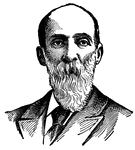
General Joseph Wheeler
(1836-1936) American Major-General active in Civil War and the Spanish-American War. Held a seat in…
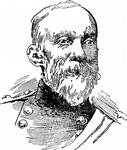
Joseph Wheeler
Joseph Wheeler (September 10, 1836–January 25, 1906) was an American military commander and politician.…
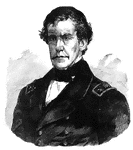
Rear Admiral Charles Wilkes
"Rear Admiral Wilkes, born in New York city, April 3rd, 1798, died in Washington, D. C., February 8th,…
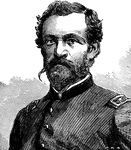
James Harrison Wilson
James Harrison Wilson (September 2, 1837 – February 23, 1925) was a United States Army topographic…
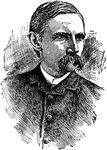
William L. Wilson
(1843-1900) American statesman, served in the Confederate Army during the Civil War, and was the president…
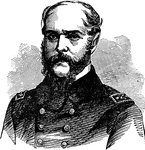
John Ancrum Winslow
Rear Admiral John Ancrum Winslow (1811 – 29 September 1873) was an officer in the United States…
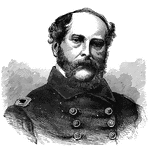
Rear Admiral John A. Winslow
"Rear Admiral Winslow, born in Wilmington, N. C., November 19th, 1811, died in Boston, Mass., September…
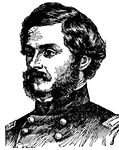
Theodore Winthrop
(1828-1861) American military officer. Killed during the Civil War while at the head of an assaulting…
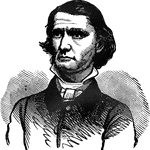
Henry Alexander Wise
Henry Alexander Wise (December 3, 1806 – September 12, 1876) was an American statesman from Virginia.…
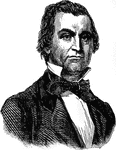
William Lowndes Yancey
William Lowndes Yancey (August 10, 1814 – July 27, 1863) was a journalist, politician, orator,…
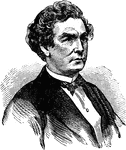
Richard Yates
Richard Yates (January 18, 1818 – November 27, 1873) was governor of Illinois during the American…
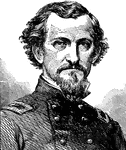
Felix Kirk Zollicoffer
Felix Kirk Zollicoffer (May 19, 1812 – January 19, 1862) was a newspaperman, three-term United States…
